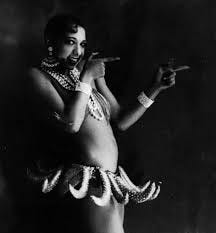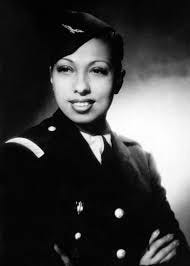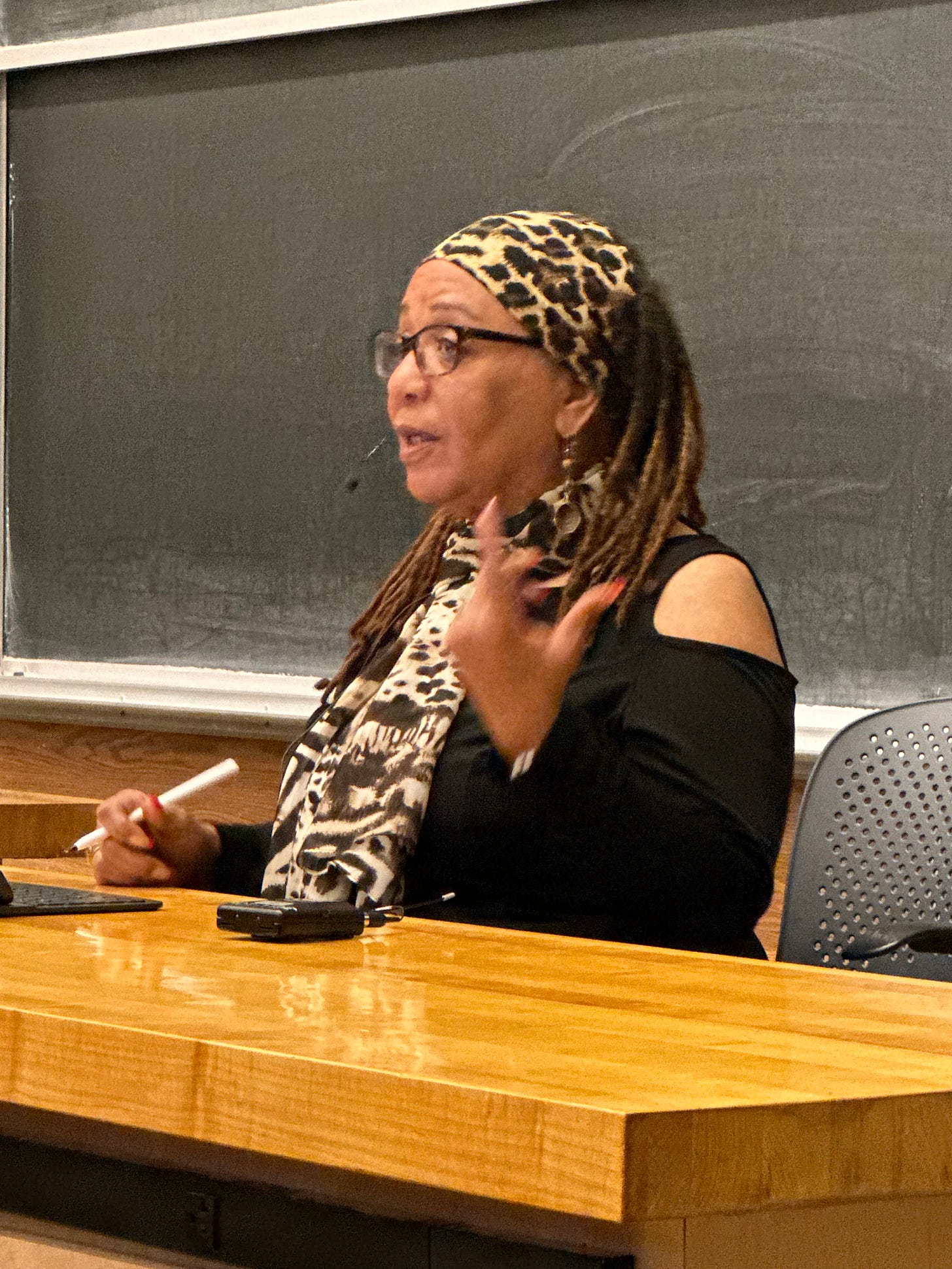Today In Black History: Josephine Baker
Celebrated French dancer, singer, WWII Resistance fighter, and American civil rights activist.
Issue #748 Today In Black History, Wednesday, October 16, 2024
There are no ads or popups in our Substack.
To further support our businesses, please see the “Shameless Plug” information at the end of this article.
If you like us, REALLY like us, please click the “Like” button at the end of this post!
Your “Likes” mean a LOT to us! We appreciate your support!
Josephine Baker was born Freda Josephine McDonald on June 3, 1906, in St. Louis, Missouri. She eventually became one of the most celebrated performers of the 20th century. Her journey to fame began in the 1920s when she moved to France, a decision that would alter the course of her life.
Josephine McDonald spent her early life on 212 Targee Street (known by some St. Louis residents as Johnson Street) in the Chestnut Valley neighborhood of St. Louis. This racially mixed, low-income area near Union Station consisted mainly of rooming houses, brothels, and apartments without indoor plumbing. As a child, she was poorly dressed and hungry, but she developed street smarts playing in the railroad yards of Union Station.
Josephine married her second husband, William Howard Baker, when she was 15. She soon left him when her vaudeville troupe was booked into a New York City venue. They divorced in 1925, yet she continued to use his last name professionally for the rest of her life.
In the early 1920s, Josephine worked in different touring companies and Broadway productions, but by the end of 1925, she moved to Paris, where, at age 19, she had her breakthrough as a featured performer.
Josephine Baker became an immediate sensation in France with her unique blend of charisma, talent, and exotic appeal. Her performances at the Folies Bergère in the “banana skirt” became legendary, earning her the nickname "The Black Pearl." Baker's success in France broke racial barriers and redefined entertainment by challenging the stereotypes and perceptions of Black performers. She eventually became the most successful American entertainer in France.
Discouraged and frustrated by the racism in the American entertainment industry and buoyed by her acceptance in Paris, Josephine Baker finally renounced her American citizenship and became a French citizen. It was decades before she came back to the U.S. in the 1950s.
Beyond her remarkable entertainment career, Baker was also a staunch advocate for civil rights. During World War II, she worked for the French Resistance, using her fame and resources to gather intelligence and support for the Allies. Her courage and contributions during the war earned her the Croix de Guerre and the Legion of Honour, France’s highest military honors.
Baker's activism didn’t stop there. In the 1950s and 60s, she returned to the United States to support the Civil Rights Movement, participating in the March on Washington in 1963. She was the only official female speaker there, standing alongside Dr. Martin Luther King Jr. Her speech was a passionate plea for racial harmony and equality, urging America to confront its systemic injustices.
In her personal life, Josephine Baker firmly believed in racial harmony and integration. As a statement against racism, she adopted 12 children from diverse racial backgrounds, calling them her "Rainbow Tribe.“ Her Château des Milandes in southwestern France became a living testament to her vision of a world where different races could coexist harmoniously.
On April 8, 1975, Baker starred in a retrospective revue at the Bobino in Paris, "Joséphine à Bobino 1975," celebrating her 50 years in show business. The revue, financed by Prince Rainier, Princess Grace, and Jacqueline Kennedy Onassis, opened to rave reviews. Demand for seating was such that fold-out chairs had to be added to accommodate spectators. The opening-night audience included Sophia Loren, Mick Jagger, Shirley Bassey, Diana Ross, and Liza Minnelli.
Four days later, Baker was found lying peacefully in her bed surrounded by newspapers with glowing performance reviews. She was in a coma after suffering a cerebral hemorrhage. She was taken to Pitié-Salpêtrière Hospital, where she died, aged 68, on April 12, 1975.
Baker received a full Catholic funeral at L'Église de la Madeleine, attracting more than 20,000 mourners. The only American-born woman to receive full French military honors at her funeral, Baker's funeral was the occasion of a huge procession. After a family service at Saint-Charles Church in Monte Carlo, Baker was interred at the Cimetière de Monaco.
Today In Black History
In 1859, John Brown attacked Harpers Ferry, Virginia, with thirteen white men and five Black men.
In 1869, Ebenezer D. Bassett became the first African American diplomat when he was appointed U.S. Minister Resident to Haiti.
In 1883, Black inventor S.E. Thomas was granted a patent for a curved metal plumbing pipe called the Waste Trap.
In 1895, the National Medical Association was founded in Atlanta after Black physicians were continuously denied membership in the American Medical Association.
In 1901, Booker T. Washington and his family were invited to dine at the White House with Teddy and Edith Roosevelt, prompting condemnation from the South.
In 1940, Benjamin Oliver Davis, Sr. was named the first Black general of the United States Army.
In 1968, American track Olympic Champions Tommie Smith (Gold) and John Carlos (Bronze) staged a Black Power demonstration with raised fists on the podium in Mexico City.
In 1973, Maynard Jackson was elected the first Black mayor of Atlanta.
In 1984, South African Anglican Bishop Desmond Tutu was awarded the Nobel Peace Prize.
In 1986, Wole Soyinka, a Nigerian playwright and poet, became the first African to receive the Nobel Prize in Literature.
In 1995, Nation of Islam Minister Louis Farrakhan called over one million Black men together in Washington, D.C., for a Day of Atonement and Reconciliation, the “Million Man March.”
In 1995, Dr. Wilma King, an author and professor of history, published Stolen Childhood, the first book-length study of the slave child.
All “We Are Speaking” posts are now free for everyone to read!
Please check out Keith’s SciFi Musings Substack for posts about fantasy, sci-fi, and Afrofuturism!
Our paid subscribers are encouraged to discuss this post in our W.A.S. Chat Community.
Join Pamela Hilliard Owens’s subscriber chat
Available in the Substack app and on the web
You are also welcome to view “We Are Speaking” in Substack Notes. You can also read other Substack publications without subscribing to them when you join Notes.
Did you know that you can listen to each “We Are Speaking” post on the Substack App? Download the app!
For 50+ years, I have been an educator, a sales leader, an author, and a business coach for creatives.
Find out all about me, what I do, and where I am online at this link.
Independent Authors and Creative Professionals: Learn to Successful Brand and Market your Books, Products, and Services!
Indpendent Authors: Completing Your Manuscript is Just the First Step. Enroll in the Author and Book Marketing Course.
Creative Professionals: “If you build it, they will come” is not a marketing strategy. Enroll in the Essential Creative Marketing Course.










